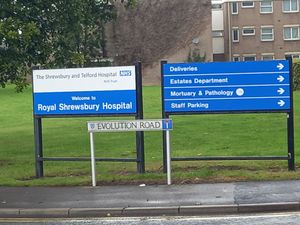Police considering criminal charges over Shropshire maternity scandal
Police say they are awaiting the full findings of the inquiry into maternity care at Shropshire’s major hospitals before a decision is made on whether there should be any criminal proceedings.

Leaked details of the inquiry involving Shrewsbury & Telford Hospital NHS Trust, which was ordered by the government in 2017, have revealed what has been called the NHS’s “worst ever maternity scandal”.
It reveals that dozens of babies and mothers are thought to have died or been left disabled due to poor care, and talks of a “toxic” culture stretching back decades and of “unkind” staff.
The initial scope of the inquiry was to examine 23 cases, but it has grown to more than 270 covering the period from 1979 to the present day.
See also:
West Mercia Police says it is liaising with the NHS and the ongoing independent investigation, but it will need to see the full findings of the inquiry before considering any next steps.
Detectives say a range of criminal charges have been discussed in the broader sense, however, at this stage no specific charges have been considered.
Detective Superintendent Carl Moore said: “West Mercia Police is liaising with the independent inquiry into maternity services under Shrewsbury and Telford Hospital Trust and we are awaiting the findings of the independent inquiry before any criminal proceedings are considered.
“This is in line with the protocol in health care settings and we are in regular contact with the inquiry to ensure we fulfil our obligations to carry out an investigation where there is a requirement for us to do so.”
Jeremy Hunt 'shocked and distressed' over leaked report
Former health secretary Jeremy Hunt, who ordered the inquiry, said he was "shocked and distressed" to read about the leaked findings.
He wrote on Twitter: "There are few things more horrific than losing a baby due to mistakes in care. This report shows sadly that Morecambe Bay, Mid Staffs & Southern Health were not 'one offs' but reflections of broader safety issues."
He said 'the sheer scale and duration of this scandal should prompt some serious soul-searching' but pointed out that a lot had changed in the NHS.
Mr Hunt said: "Lots has changed: we have a tough independent CQC inspection regime, a new national body dedicated to learning lessons from these incidents (HSIB), independent investigations of every serious incident and a ‘duty of candour’ when things go wrong.
"We also have a national programme to halve stillbirths, neonatal & maternal deaths by 2025. Taken together this probably makes the NHS a world leader in maternity safety - which we need to be because, tragically, we still have four neonatal deaths every single day in England.
"Staffing levels matter and it will take time for the increases in doctor, nurse and midwife training places to feed through into more staff on the ground. Until then NHS staff will continue to deliver extraordinarily compassionate care under enormous pressure.
"But for me the single most important thing is to nurture a proper learning culture, where the first objective when something goes wrong is to learn the lessons and make sure it is never repeated.
Important
"Our best hospitals have this but in other places a blame culture still means fear of litigation, castigation or losing your job makes it difficult for staff to be open about mistakes."
Former health minister and the prospective parliamentary candidate for the Ludlow constituency, Philip Dunne, said it was important for all healthcare settings to learn from incidents when things go wrong and to instil a culture of learning within trusts so that patients continue to have confidence in the NHS.
He added: "There are currently some 4,700 babies born each year under SaTH care.
"I know clinicians involved have worked hard to improve patient safety and learn from what mistakes have happened in the past.
"I note the comment from SaTH that issues arising from these tragic cases over the past 40 years have been and are being addressed.
"But I am keen to see this review completed as soon as practical so that the trust can be transparent in what it has done and is doing to give confidence to the public that its services are safe and provide high quality care to all patients."





